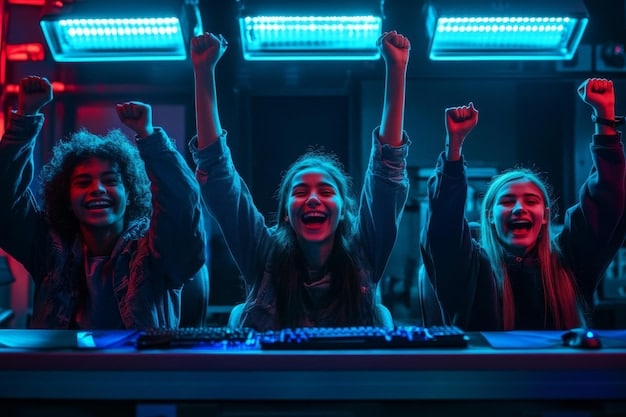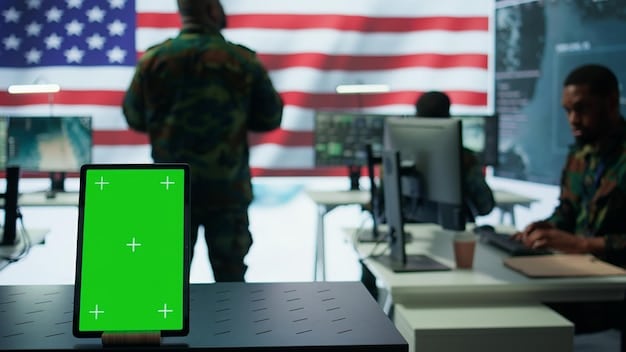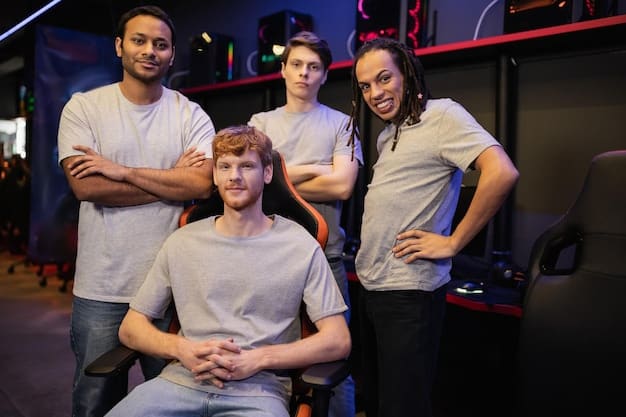Addressing Online Harassment: How US Esports Protect LGBT Players

How are US esports organizations addressing online harassment and toxicity targeting LGBT players? Many are implementing stricter codes of conduct, promoting inclusivity through education, and providing reporting mechanisms for players facing abuse.
The world of esports is a competitive arena, but it should also be a welcoming and safe space for everyone. The intersection of esports and the LGBT community, however, often faces challenges in the form of online harassment and toxicity. How are US esports organizations addressing online harassment and toxicity targeting LGBT players?
This article explores the measures being taken to protect LGBT players, promote inclusivity, and foster a more positive environment within the US esports scene. Understanding these efforts is crucial for creating a gaming world where everyone can compete without fear of discrimination or abuse.
Understanding Online Harassment in Esports
Online harassment is a pervasive issue across the internet, and esports is no exception. The anonymity and competitive nature of online gaming can create a breeding ground for toxic behavior, especially toward marginalized groups such as LGBT players. Understanding the nature and impact of this harassment is the first step toward addressing it effectively.
Types of Online Harassment
Online harassment can manifest in various forms. It’s important to recognize these different types to fully grasp the scope of the problem:
- Verbal Abuse: This includes insults, slurs, and derogatory comments targeting a person’s sexual orientation or gender identity.
- Doxing: Revealing someone’s personal information (like address, phone number, or workplace) with malicious intent.
- Hate Speech: Using language that attacks or demeans a group based on attributes like sexual orientation or gender identity.
- Harassment Campaigns: Coordinated efforts to target an individual with sustained abuse and negativity.
Impact on LGBT Players
The impact of online harassment on LGBT players can be significant. It can lead to increased anxiety, depression, and a sense of isolation. Some players may even withdraw from esports entirely, depriving the community of their talent and passion. Constant exposure to hateful comments can create a hostile environment that undermines the sense of belonging and fair play.
In conclusion, recognizing the different forms of online harassment and understanding its impact on LGBT players is essential for US esports organizations looking to create a more inclusive and supportive environment. The next step is to explore the specific actions these organizations are taking to address this pervasive issue, fostering a community where everyone can compete without fear of abuse or discrimination. This is how are US esports organizations addressing online harassment and toxicity targeting LGBT players to improve esports community.

Codes of Conduct and Reporting Mechanisms
One of the primary ways US esports organizations are combating online harassment is through the implementation of comprehensive codes of conduct. These codes outline expected behavior and detail the consequences for violations. Alongside these codes, effective reporting mechanisms are crucial for players to safely report incidents of harassment.
Strict Codes of Conduct
Many organizations now have specific clauses in their codes of conduct that address harassment based on sexual orientation and gender identity. This sends a clear message that discriminatory behavior will not be tolerated. Some key components of these codes include:
- Zero Tolerance Policies: A firm stance against any form of discrimination or harassment.
- Clear Definitions: Explicitly defining what constitutes harassment, including examples of unacceptable behavior.
- Consequences for Violations: Outlining penalties such as warnings, suspensions, or permanent bans for those found guilty of harassment.
Effective Reporting Systems
Having a code of conduct is only effective if there’s a way to report violations. Organizations are implementing various reporting mechanisms to encourage players to come forward:
- Dedicated Reporting Channels: Providing specific email addresses, forms, or in-game reporting tools for harassment incidents.
- Confidential Reporting: Ensuring that reports are handled with discretion and sensitivity, protecting the privacy of the reporter.
- Prompt Investigation: Committing to investigate all reports thoroughly and take appropriate action in a timely manner.
Having clear and accessible reporting systems empowers LGBT players and allies to report incidents of harassment without fear of retaliation. These systems ensure that violations are addressed promptly, sending a message that the organization takes these issues seriously. This is crucial for how are US esports organizations addressing online harassment and toxicity targeting LGBT players to build a safer community.
Promoting Inclusivity Through Education
Beyond codes of conduct and reporting mechanisms, education plays a vital role in fostering a more inclusive esports environment. US esports organizations are increasingly recognizing the importance of educating players, staff, and the broader community about LGBT issues, diversity, and the impact of online harassment. By raising awareness and promoting understanding, these organizations aim to create a culture of respect and empathy.
Education can create a lasting shift in attitudes and behaviors. Organizations are implementing various educational initiatives to promote inclusivity and combat online harassment. Such efforts include:
- Diversity and Inclusion Training: Conducting workshops and training sessions for players and staff on topics like unconscious bias, cultural sensitivity, and LGBT issues.
- Awareness Campaigns: Launching campaigns to raise awareness about the impact of online harassment and promote allyship within the esports community.
- Partnerships with LGBT Organizations: Collaborating with LGBT advocacy groups to develop educational resources and programs tailored to the esports audience.
By emphasizing empathy and understanding, educational initiatives can help create a more welcoming and inclusive esports environment for everyone. How are US esports organizations addressing online harassment and toxicity targeting LGBT players is a continual process of learning and adaptation.
Creating Safe Spaces and Communities
In addition to formal measures, creating safe spaces and communities within esports is essential for supporting LGBT players. These spaces provide a sense of belonging, offer opportunities for social connection, and allow players to express themselves authentically without fear of judgment or harassment. US esports organizations are increasingly recognizing the importance of fostering these supportive environments.
Safe spaces can take various forms, from online forums and Discord servers to in-person meetups and events. The key is to create environments where LGBT players can connect with like-minded individuals, share their experiences, and feel supported by their peers. This directly impacts how are US esports organizations addressing online harassment and toxicity targeting LGBT players.
Building Supportive Communities
There are many strategies to build supportive communities within the esports scene:
- Dedicated LGBT Teams and Leagues: Supporting the formation of teams and leagues specifically for LGBT players, providing opportunities for competition and camaraderie.
- Online Forums and Discord Servers: Creating moderated online spaces where LGBT players can connect, share resources, and discuss issues relevant to their experiences.
- In-Person Meetups and Events: Organizing social gatherings and events where LGBT players can meet in person, build relationships, and celebrate their identities.
By fostering these supportive environments, US esports organizations can help to counteract the negative effects of online harassment and create a stronger sense of community for LGBT players. This contributes to a more inclusive and welcoming esports scene for all.

The Role of Allies in Combating Harassment
While it’s crucial for US esports organizations to take proactive steps in addressing toxicity, the responsibility of creating a safe and inclusive environment doesn’t fall solely on their shoulders. Allies play a vital role in combating harassment and supporting LGBT players within the esports community. Allies are individuals who are not part of the LGBT community but actively support LGBT rights and work to create a more inclusive environment. They are crucial in how are US esports organizations addressing online harassment and toxicity targeting LGBT players.
Allies can make a significant difference by speaking out against harassment, standing up for LGBT players, and promoting inclusivity within their own spheres of influence. Their support can help to counteract the negative effects of online toxicity, demonstrate that LGBT players are valued and respected, and create a more welcoming environment for everyone.
Ways to be an Effective Ally
Allies can contribute through various approaches:
- Speak Out Against Harassment: Intervene when you witness harassment, challenge discriminatory language, and report violations to the appropriate authorities.
- Support LGBT Players: Show your support for LGBT players by cheering them on, celebrating their achievements, and amplifying their voices within the esports community.
- Educate Others: Help to raise awareness about LGBT issues and the impact of online harassment by sharing information, resources, and personal stories.
By actively supporting LGBT players, educating others, and challenging discriminatory behavior, allies contribute to a more inclusive and respectful esports environment. This collective effort is essential for how are US esports organizations addressing online harassment and toxicity targeting LGBT players for a brighter esports community.
Future Directions and Ongoing Efforts
The fight against online harassment and toxicity in esports is an ongoing process. While US esports organizations have made progress in addressing these issues, there is still much work to be done. It’s critical to continue developing new strategies, refining existing measures, and fostering a culture of continuous improvement to ensure a safe and inclusive environment for all players. Ongoing vigilance and new approaches are key to how are US esports organizations addressing online harassment and toxicity targeting LGBT players.
As the esports landscape evolves, new challenges and opportunities will emerge. Organizations must remain adaptable, open-minded, and committed to learning from their experiences to effectively address future issues. The pursuit of inclusivity requires ongoing effort and a willingness to challenge the status quo.
Areas for Future Focus
Future efforts might involve:
- Advanced AI Moderation: Implementing AI-powered tools to detect and flag harassment in real-time, enabling quicker intervention and response.
- Mental Health Support: Providing access to mental health resources and counseling services for players who have experienced online harassment.
- Community-Driven Initiatives: Empowering players to take ownership of creating a positive and inclusive environment through community-led initiatives and programs.
By embracing these ongoing efforts and future directions, US esports organizations can pave the way for a truly inclusive and welcoming esports community where LGBT players can thrive without fear of harassment or discrimination. It’s about how are US esports organizations addressing online harassment and toxicity targeting LGBT players in every facet of the game.
| Key Point | Brief Description |
|---|---|
| 🛡️ Codes of Conduct | Organizations implement strict rules to address discrimination. |
| 📣 Reporting Systems | Players are given channels to report harassment incidents safely. |
| 📚 Education | Training and campaigns promote inclusivity and understanding. |
| 🤝 Allies | Allies support LGBT players by speaking out and educating others. |
FAQ
Esports should be inclusive. Addressing harassment ensures fair play, welcomes talent, and cultivates a safe environment where everyone can thrive.
Common forms include verbal abuse, hate speech, doxing, and coordinated harassment campaigns, often targeting marginalized groups.
Codes of conduct establish clear guidelines and consequences for harassment, providing a framework for reporting and addressing violations.
Allies support LGBT players by speaking out against harassment, educating others, and promoting inclusivity within their communities.
Organizations can track reporting rates, conduct surveys on player experiences, and monitor the overall climate to adjust their strategies for inclusivity.
Conclusion
US esports organizations are making strides toward addressing online harassment and toxicity targeting LGBT players through various means. Codes of conduct, reporting mechanisms, and educational initiatives are all vital tools in creating a more inclusive environment.
The esports community needs ongoing commitment from organizations, allies, and players to continue fostering a welcoming and safe space for everyone. This will ensure fair opportunities and promote a culture of respect in the competitive gaming world. It’s about constantly improving how are US esports organizations addressing online harassment and toxicity targeting LGBT players.





